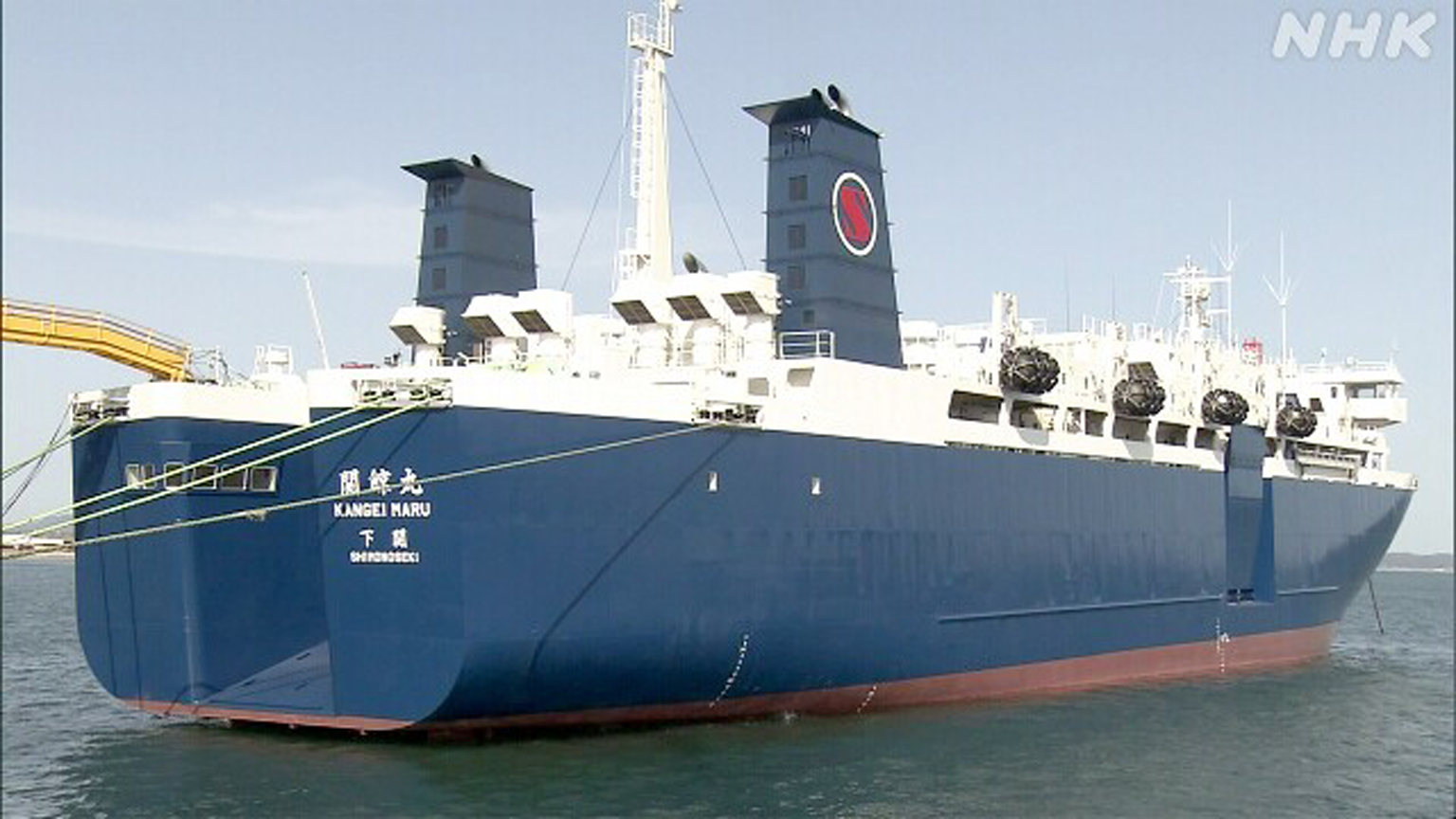The mother of all investments
On April 3, a crowd gathered in Shimonoseki City, Yamaguchi Prefecture, to celebrate the completion of the Kangei Maru, a 9,300-ton colossus built by Tokyo-based firm Kyodo Senpaku at a cost of 7.5 billion yen — just shy of 50 million dollars.
The vessel will replace Japan's only existing mother ship, the 30-year-old Nisshin Maru, and comes with a vast array of technological upgrades, as well as extra work and storage space. The "mother ship" designation refers to the process where smaller and more agile craft hunt the whales, then bring the carcasses to the bigger ship for freezing.
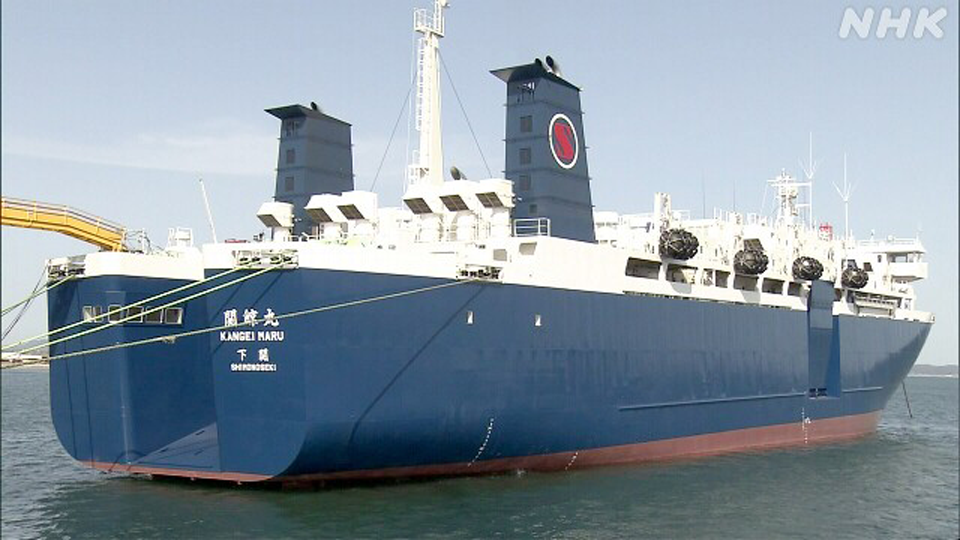
Rather than carving up the carcasses on deck, often in bad weather, the workers will now be able to perform their duties in the Kangei Maru's vast indoor space, ensuring a better standard of hygiene.
"The Kangei Maru is the first step toward passing on the 'offshore mother ship whaling' method forever," declared Kyodo Senpaku president Tokoro Hideki.
Excitement at home, indignation abroad
To coincide with the launch, Shimonoseki City is promoting restaurants and hotels where people can enjoy whale dishes, and raising awareness about different cuts and their nutritional content. Restaurant owners are also trying to expand their repertoires.
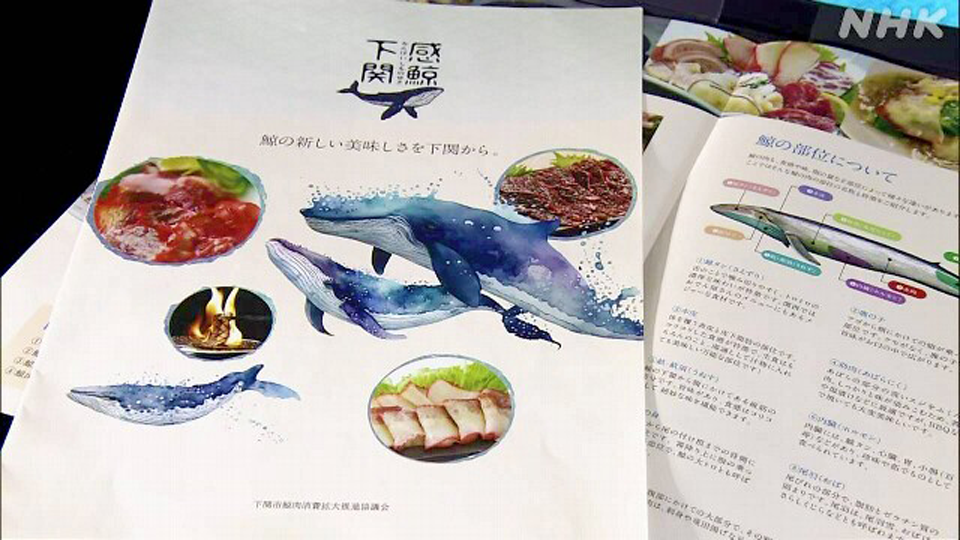
Local enthusiasm is matched only by distaste in other parts of the world. A recent report by Japan's Fisheries Agency noted that out of the 88 member countries on the International Whaling Commission, 50 oppose whaling.
The IWC banned commercial hunts in 1986, but allowed Japan to continue catching a small number of whales each year for research purposes. The local industry said that would make it possible to keep tabs on populations of different species, with a view to compiling data that would eventually justify ending the moratorium.
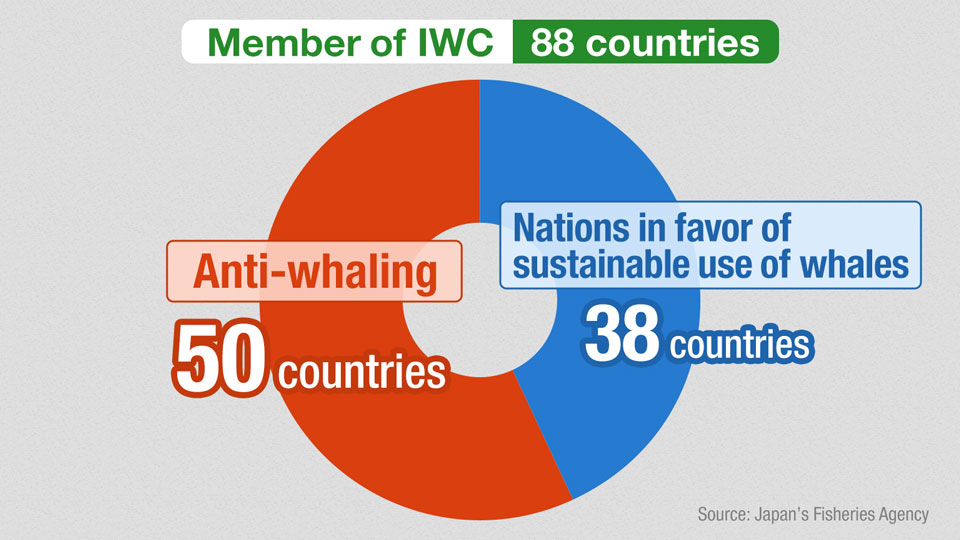
But Japan's push to get the ban lifted made little headway, and after years of tense discussions with anti-whaling countries on the commission, it declared in 2019 it was quitting the body and would resume commercial whaling the same year.
The catch would be limited to three species — Minke, Bryde's and Sei whales, all of which had sufficient numbers to make commercial hunts sustainable, the Japanese government said. The annual catch quota would be based on the calculation method used by the IWC, and the hunt would be confined to Japan's territorial waters and its Exclusive Economic Zone.
Changing appetites
Japan currently has just one fleet that operates on the high seas, comprising a mother ship and three smaller vessels. It also has five coastal whaling ships.
In 2023, the total haul was 83 Minke, 187 Bryde's, and 24 Sei whales. But local appetite for the flesh remains at historic lows, hovering between 1,000 and 2,000 tons a year. That's less than 1 percent of what people ate in the 1960s, when consumers worked their way through 200,000 tons a year.
So weak is interest in whale meat that in some years after the resumption of commercial whaling, Japan consumed even less than it did in the years prior.
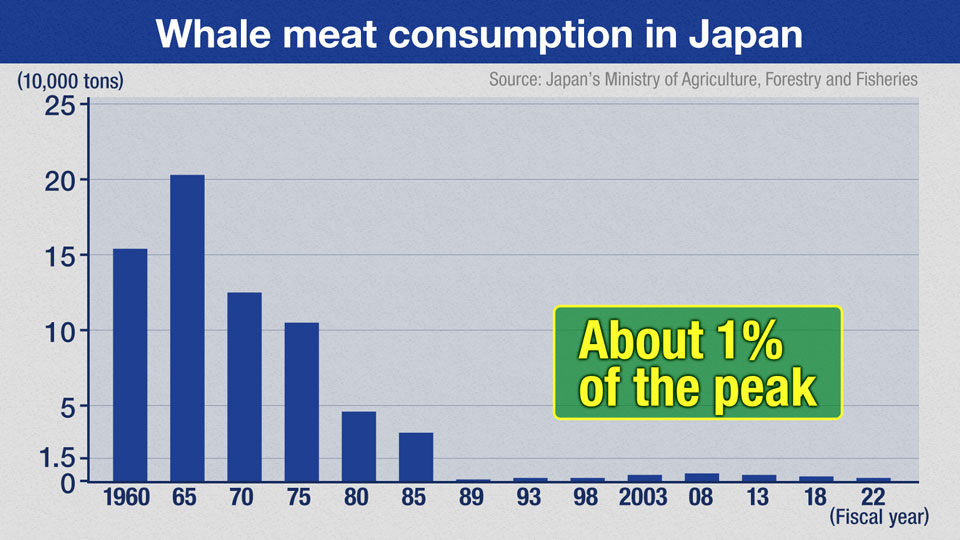
Experts attribute the slump to a diversifying food culture. They say consumers are no longer familiar with whale meat. And they note it's now harder to buy, because some distributors have stopped selling it.
Trying to turn the ship around
The industry has struggled as a result. Despite the resumption in commercial catches in 2019, Kyodo Senpaku didn't make an operating profit until fiscal 2022. The Kangei Maru is now weighing heavily on its finances. The ship will take a 300-million-yen-sized bite out of the firm's bottom line every year for decades to come.
Kyodo Senpaku is not taking any of this lying down. The firm is working hard to raise the profile of its product, even launching a series of whale meat vending machines in 2023 at locations in Tokyo, Yokohama and Osaka. It says sales have been strong.
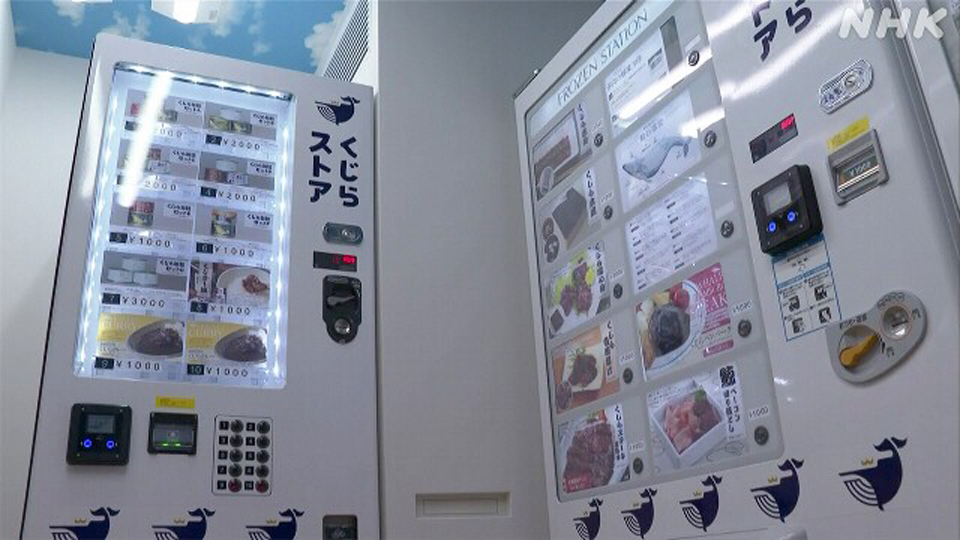
At a whale restaurant in Tokyo's Minato Ward, a 90-minute all-you-can-eat menu on Saturdays gives people a chance to try a variety of styles: raw, fried, and steak, among other options. One diner was suitably impressed. "It's all delicious," declared the man in his 30s.
